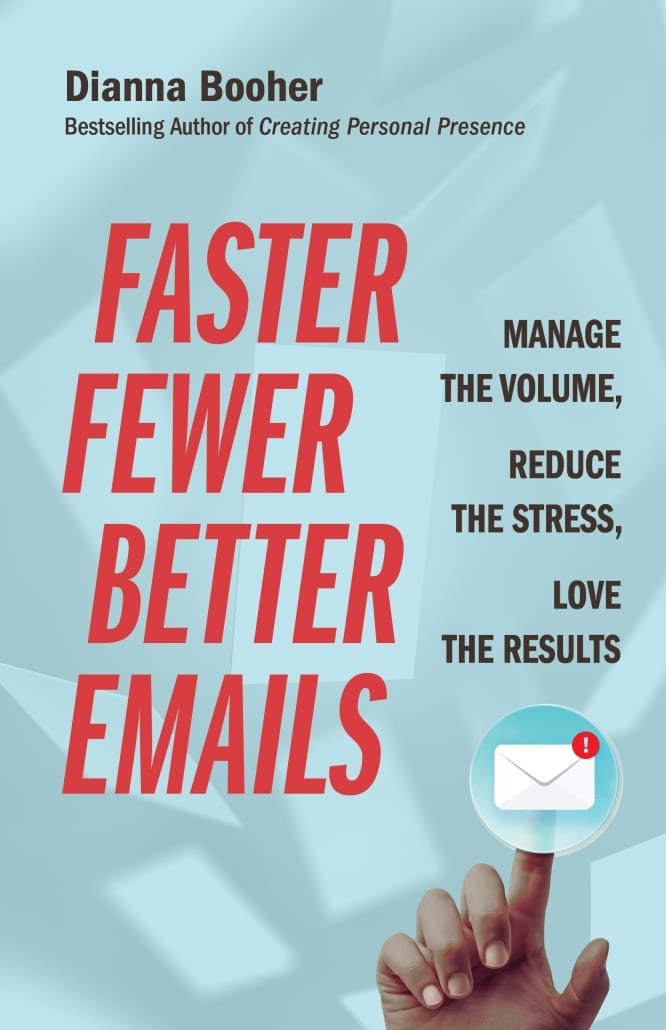What Does Your Email Reveal About Your Leadership Style?

“Understood,” my CEO client responded. “Just review what my admin sends you and give me a one-page opinion on each of the four VPs. That’s all I ask.”
This conversation happened early in my career, and frankly, I feared that I might disappoint him in not being able to draw conclusions.
Within a few days, the CEO’s bundle of emails arrived, basically restating what he’d said on the phone. His executive assistant had collected emails from four of his VPs. Specifically, the emails were representative of those the four VPs had sent to 1) peers 2) their direct reports and 3) those higher-ups in the chain (the CEO himself or EVPs).
My mission: To describe their leadership style and general attitudes about their work as reflected in their emails. So I pushed through the pile of VP documents carefully labeled by his assistant.
After submitting my one-page opinions on each, the CEO phoned again. “You’ve pegged them exactly! … Now, I want you to meet with them one on one to debrief them. Tell them what’s apparent in their writing. Give them the details about what you found. See what they might want to change.”
The first three meetings went well. The VPs seemed quite shocked that their writing revealed so much about their personalities, attitudes, and leadership style. But basically, they agreed with my evaluations and the emails discussed as examples.
But the fourth meeting (scheduled last because I dreaded it) didn’t go so smoothly. As I suspected, the SVP reacted quite differently. Mac listened in almost total silence as I delivered my conclusions.
As tactfully as possible, I pointed out that his emails to the executive team sounded friendly, but vague and cavalier. On the other hand, emails to his staff sounded indifferent at best and harsh and dictatorial at worst.
His general response that day: “Not interested in making changes.”
A few months later, I learned that Mac was no longer with the organization. Although I don’t know all that contributed to his termination, I do know that his writing did not add to his credibility, influence, or results with clients, coworkers, or higher-ups.
4 Ways Your Leadership Style Is on Display in Your Email
What can you apply to your own situation?
Unwillingness to Share Reasoning
When Mac presented a recommendation to higher-ups, he supported it with data or at least his reasoning. Not so, with staff. With them, he simply announced his decisions and expected compliance.
An Attempt to Bluff
When answering questions from higher executives about projects, budgets, or problems, Mac often responded with sketchy details. The tone was, “All is well, just trust me, and don’t probe.” A reader easily got the feeling that Mac took offense if the boss asked about any skeletons in the closet.
No Requests for Input
Mac wrote to his staff almost entirely in directives. He requested no opinions or ideas from them. When he informed them of a decision and upcoming action, the tone was, “Make it happen and don’t bother me with questions.” The difference between Mac and a mafia boss? Mac dealt in mortgages. Mafia bosses deal in murder and other mayhem.
Lack of Personal Accountability
Even though I analyzed more than a hundred of Mac’s emails, none contained an “accountability” statement – not even close.
- No statements of goals (specific goals would have set him up to explain any shortfall)
- No acknowledgement or apology for a mistake or misunderstanding
- No ownership for poor outcomes – his or those related to his team’s performance
- No feedback or praise to his team or colleagues
Granted, Mac didn’t send his entire email stash for the CEO’s evaluation. But reason would suggest that he’d sent his best – a collection aptly reflecting his leadership style.
Just as Mac’s writing did, your email can alter the trajectory of your career. Leaders master strategies to improve what they say, how they say it, and what NOT to say in email. And in my three decades of experience, I’ve observed that clear communicators become leaders in every industry.
Find out what secrets your own emails reveal about your leadership.
About the Author














Leave a Reply
Want to join the discussion?Feel free to contribute!